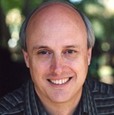We are all familiar with people who live completely in the past, lost in their memories of long ago, but we usually label such people senile or mentally ill. Certainly we are not among them. Or are we?
Lesson 7 in A Course in Miracles* says, "I see only the past." To help us get a handle on this admittedly strange notion, the Course asks us to look at a cup. "Do you see a cup, or are you merely reviewing your past experiences?" it asks. Let's attempt to answer that question. If you have a coffee cup handy, please get it and place it in front of you.
As you look at the cup, try to become aware of your total perception of it. Within your perception aren't there memories of picking up a cup by the handle? Doesn't your perception also include memories of being thirsty and having a cup satisfy your thirst? Doesn't it also contain memories of having a cup against your lips? Your perception even includes whether or not this cup will break if you drop it, does it not? And where can that come from except past memories? The Course then asks, "What do you know about this cup except what you learned in the past?...Do you, then, really see it?" Indeed, do you?
The exercise for this lesson instructs me to look around the room and say, "I see only the past in this pen...in this foot...in this clock, etc." As I do this exercise, I have an unsettling feeling. I begin to feel trapped in the past. Everywhere I look, the past is all I see. I normally assume that I am looking upon things as they are, seeing what is real. Yet now I have the disturbing sense that all of that lies beyond my grasp. Wherever I look, on every surface, all I see are the projections of old movies. I am like the senile person who lives in his memories.
Yet what is the alternative? It seems that without the wealth of memories I have built up around each object, things would have no meaning to me at all. I would have no idea how to navigate in my world. I wouldn't even know what to do with a cup. I would be like a newborn baby, staring blankly at the cup, more prone to pick it up and gnaw on it than drink from it.
As I do the exercise, however, another feeling arises in me: a deep desire to directly touch the real. I want to reach past my projected memories and see what is really there. Perhaps there is a way to do that. Perhaps there is a whole other kind of seeing, an inward kind of seeing that bypasses my physical senses, that pierces the veil of surface appearances, and lets me know things as they really are, right now. And maybe by admitting that I am not seeing now, that I am seeing only the past, I open my mind to this new kind of vision.
*A Course in Miracles is a modern spiritual classic. It is aimed at training our minds to shift our perception from resentment to forgiveness, which it sees as the gateway to enlightenment. Its teachings blend Christianity, Eastern wisdom, and modern psychology with its own original themes.
Robert Perry is one of the most respected interpreters of A Course in Miracles. He has been teaching since 1986, is the author of nineteen books and booklets on the Course, and is the founder of the Circle of Atonement, a teaching center in Arizona dedicated to serving students of the Course. Visit the Circle of Atonement's website at www.circleofa.org, or contact the Circle at P.O. Box 4238, Sedona, AZ 86340. Email: info@circleofa.org, or phone: 888-357-7520.
Additional Resources covering A Course In Miracles can be found at:
Website Directory for A Course In Miracles
Articles on A Course In Miracles
Products for A Course In Miracles
Discussion Board
Robert Perry, the Official Guides To A Course In Miracles

Post new comment
Please Register or Login to post new comment.